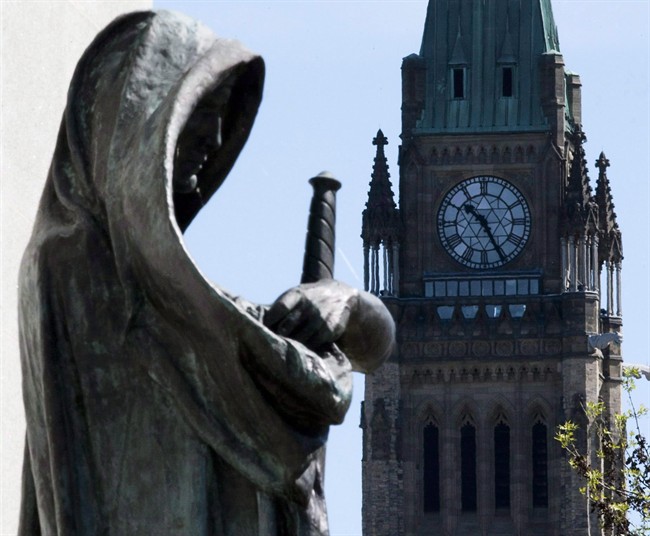The recent spat between the Supreme Court of Canada and Prime Minister Stephen Harper is just the latest chapter in a contentious relationship.

Since taking office in 2006, the prime minister himself has appointed five of the judges currently sitting on the bench. During that time, there have been a number of flare-ups between the Harper government and the top court.
Take a look at a few recent decisions that have put a wrench in the Conservative government’s plans:
Insite
Back in 2011, the Supreme Court heard arguments over the legality of Vancouver’s Insite program, a safe-injection facility that allows users to connect to health care services like addiction counselling.
The PM came close to shutting down Insite, but after the challenge was brought before the Supreme Court , the justices unanimously ordered the federal minister of health to grant an exemption allowing Insite to remain open.

Prostitution
In another unanimous ruling, the Supreme Court of Canada struck down Canada’s anti-prostitution laws. Lawyers on behalf of the Harper government argued vehemently to keep laws prohibiting brothels and living off the avails of prostitution in place.
But Chief Justice Beverley McLachlin noted “Parliament has the power to regulate against nuisances, but not at the cost of the health, safety and lives of prostitutes.”
The laws on prostitution are to remain in place for one year after the ruling, giving the government until the end of the year to come up with new legislation.
Truth in Sentencing Act
In April 2014 the Supreme Court dealt a blow to the Conservative’s tough-on-crime agenda. The Truth in Sentencing Act aimed to stop judges from giving offenders extra credit for time served in jail prior to sentencing.
In yet another unanimous decision (7-0), the court decided that taking away early parole rights from some prison inmates was unconstitutional.
Senate Reform
Following a number of scandals in the Senate, Harper announced his plan to overhaul the Canadian institution.
The Conservative government aimed to transform the upper chamber into an elected body, and to set term limits of nine years.
But again, the top court kiboshed Harper’s plans, ruling that the changes would require consent of at least seven provinces and half of Canadians.
Supreme Court Nominee Marc Nadon
The top court and Harper government recently clashed over the rejection of Supreme Court nominee Justice Marc Nadon.
In March 2014, the Supreme Court said Nadon, a federal court judge, was ineligible to represent Quebec on the Supreme Court because he did not meet the qualifications outlined in the Supreme Court Act.
At the time of the nomination, he was neither a Quebec lawyer nor a Quebec superior or appeals court judge—therefore not eligible to represent the province.

Next Up:
The Supreme Court of Canada has announced it will hear arguments on medically assisted suicide this fall.
This will be the second time the top court will visit the issue. Back in 1993, it upheld the provision in the Criminal Code of Canada stating 241(b) did not violate the right to “life, liberty, and security of the person.”
- ‘Shock and disbelief’ after Manitoba school trustee’s Indigenous comments
- Invasive strep: ‘Don’t wait’ to seek care, N.S. woman warns on long road to recovery
- ‘Super lice’ are becoming more resistant to chemical shampoos. What to use instead
- Canadian food banks are on the brink: ‘This is not a sustainable situation’





Comments